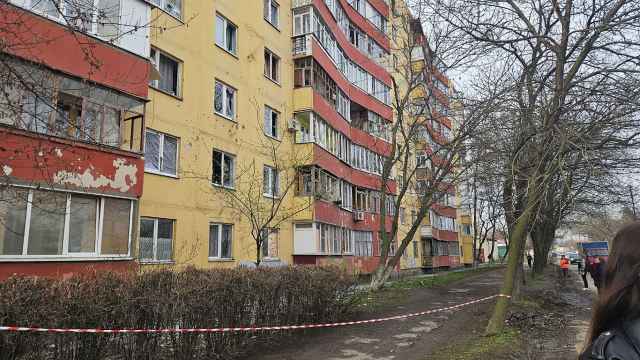Thousands of wealthy Moscow residents who subscribed to a regional internet provider have had personal data including names, home addresses and mobile numbers posted online.
People affected by the high-profile data leak are all clients of Moscow-based internet provider Akado Telecom, a large telecommunications network owned by billionaire businessman Viktor Vekselberg, which said it had opened an inquiry into the incident.
Russian authorities have been paying close attention to such incidents following leaks that led to the publication of information about military intelligence agents accused of links to an attack on former Russian spy Sergei Skripal in Britain.
Reuters saw several hundred records on an international database and identified data including the mobile phone numbers and addresses of a high-ranking Russian government official, a well-known film director and a leading businessman's relative.
The data was uploaded to the database of RIPE NCC, a not-for-profit regional internet registry for Europe, the Middle East and parts of Central Asia, said IT specialist Vladislav Zdolnikov, founder of the TgVPN service, which offers VPNs for users of the Telegram messaging application.
RIPE NCC operates a public database listing which IP addresses have been allocated to different internet service providers. It should not, however, identify individual customers by name or other personal information.
Companies that are members of the registry, which include Akado Telecom, are responsible for loading data onto the database, said Alexei Semenyaka, a RIPE NCC communications director.
He said Akado Telecom must have uploaded the customer details, which he confirmed could be accessed freely.
Akado Telecom said it had launched an internal investigation, but did not say whether it knew the private data of its clients had been published or whether the company had provided the information.
"We always respond to criticism with attention and gratitude and conduct thorough analyses to uncover vulnerabilities in our information systems in order to prevent possible data leaks," it said in a statement.
Akado Telecom operates three subnetworks with 24,500 IP addresses in total, Zdolnikov said.
All of those individual users, most of whom live in the capital's wealthiest districts, could have been affected.
The database also listed information about banks and government agencies that use Akado Telecom, as well as their staff's contact details.
In Russia, it has been illegal to make personal data publicly available since 2006 and companies breaking the law face fines of up to 50,000 rubles ($756).
A Message from The Moscow Times:
Dear readers,
We are facing unprecedented challenges. Russia's Prosecutor General's Office has designated The Moscow Times as an "undesirable" organization, criminalizing our work and putting our staff at risk of prosecution. This follows our earlier unjust labeling as a "foreign agent."
These actions are direct attempts to silence independent journalism in Russia. The authorities claim our work "discredits the decisions of the Russian leadership." We see things differently: we strive to provide accurate, unbiased reporting on Russia.
We, the journalists of The Moscow Times, refuse to be silenced. But to continue our work, we need your help.
Your support, no matter how small, makes a world of difference. If you can, please support us monthly starting from just $2. It's quick to set up, and every contribution makes a significant impact.
By supporting The Moscow Times, you're defending open, independent journalism in the face of repression. Thank you for standing with us.
Remind me later.






